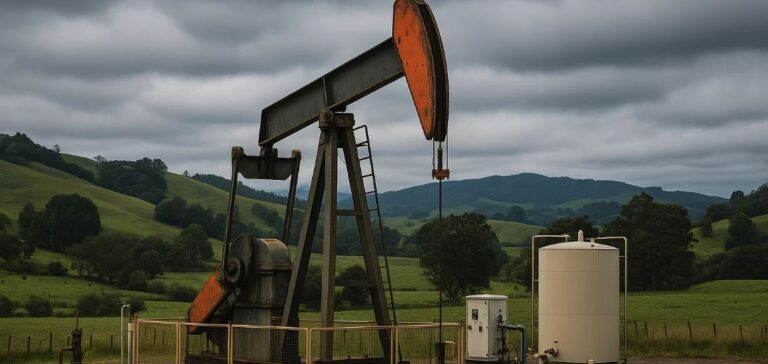Oilfield services group Halliburton reported a 67% year-on-year drop in net profit for the first quarter, falling to $203mn from $610mn, according to a statement released on April 22. The decline was largely attributed to a sharp contraction in operating margin, which dropped to 8% from 17% both in the previous quarter and the same period last year. Total revenue stood at $5.42bn, down 6.7%, but above market expectations, which were set at $5.28bn.
North American activity slowdown
Revenues generated in North America fell by 12% year-on-year. The contraction was linked to reduced demand for services related to existing wells and a decline in offshore equipment sales in the Gulf of Mexico. The company was able to partially offset these losses through stable activity in new well drilling across the United States.
In Latin America, Halliburton also faced challenges, with revenue down 19%, most notably in Mexico. The group also incurred exceptional charges totalling $356mn, mainly due to asset impairments in Argentina and the devaluation of the Egyptian pound.
Relative resilience in international markets
Outside North America, revenues declined by just 2%. Halliburton benefited from strong operations in Norway, Namibia, Kuwait and Saudi Arabia, which helped mitigate the overall regional downturn. These markets partly offset the weaker performance across the American continent.
Chief Executive Officer Jeff Miller stated in the release that the quarterly results reflected “recent pressures on the global energy market,” while asserting that the group remains well-positioned due to its operational capabilities and technological offerings. Last autumn, Halliburton introduced a new automated hydraulic fracturing system designed to enhance well productivity.
Market reaction and outlook
Despite adjusted earnings per share of $0.60, in line with analyst forecasts, the results were poorly received by investors. Halliburton shares declined by 2.60% in pre-market trading on the New York Stock Exchange. No additional commentary was provided regarding medium-term outlook or future geographic investment distribution.






















